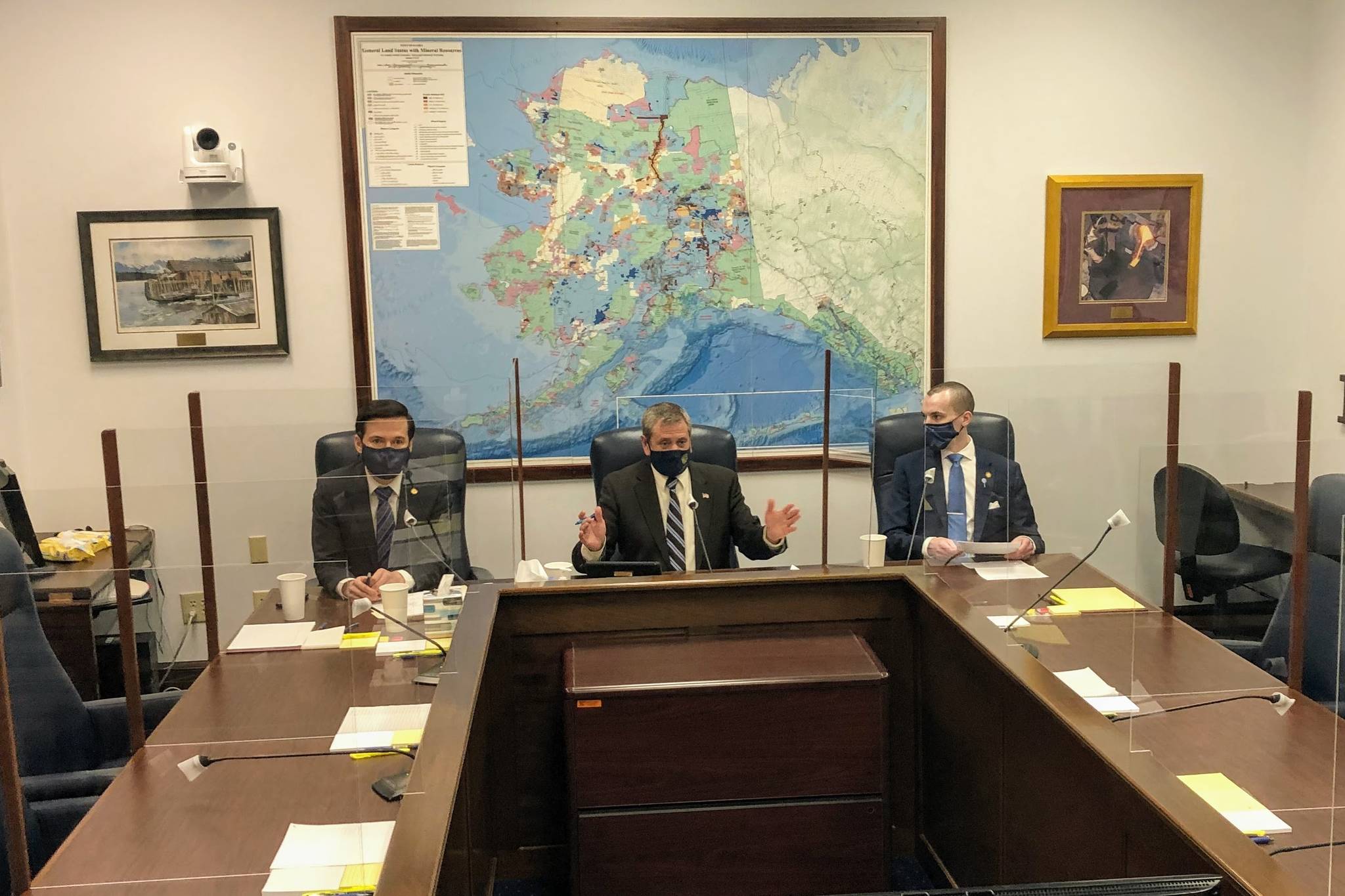In a move to hasten legislative work, the Alaska House of Representatives on Thursday passed a bill to provide education and student transportation funding ahead of the operating budget.
Generally, education funding has been part of the larger spending bill; however, representatives are feeling a time crunch as Thursday was the Legislature’s 94th day. Sessions are supposed to only take 90 days, per statute and under the State Constitution, a special session must be called after 121 days. The state’s fiscal year starts July 1, at which point a budget must be passed or government services will no longer be funded.
Lawmakers are still shooting for the May 19, deadline, said House Finance Committee Co-chair Rep. Neal Foster, D-Nome, in a news conference Thursday, but federal American Rescue Plan funds have slowed the typical budget process.
The House Finance Committee was hoping to present a version of an operating budget bill Friday, allowing for amendments to be written over the weekend. But because school districts are asked to draft budgets before the state decides how much it’s going to spend on education, lawmakers decided to pass the education budget separately from the rest of the budget.
The amended bill passed, 26-14, with minority members Reps. Mike Cronk, Tok; Bart Lebon, Fairbanks; Steve Thompson, Fairbanks joining the majority. Rep. Sara Rasmussen, R-Anchorage,
The bill had greater bipartisan support, but some members of the Republican minority strongly objected to an amendment offered Wednesday by Rep. Sara Rasmussen, R-Anchorage, providing the funding for an additional year.
The bill was offered Wednesday, but its supporters were not able to waive legislative rules allowing an early vote and it was held until Thursday. Minority members said Wednesday and again on Thursday the state had no way of knowing exactly how much money it was appropriating and school districts had already received federal CARES Act funding.
[With deadlines looming, lawmakers try to speed up school funding]
“Unprecedented amounts of federal relief money are going to our schools, it all goes unreported to this body,” said. Rep. Kevin McCabe, R-Anchorage. “We have no idea what the students have available to them.”
Supporters of the bill, including some Republican minority members, countered the state’s funding for schools was already set out in statute, and based on pre-existing formula’s within the Legislature’s power to change in the current or future sessions.
“It’s pretty formulaic. It’s a process, we’re taking the process and multiplying times two,” said Rep. Adam Wool, D-Fairbanks.
Wool and other of the bill’s supporters also pushed-back against the notion that because Alaska’s school performance metrics were low compared to other states, schools shouldn’t receive as much funding. Wool said that notion was punitive.
“Suggesting we should cut their funding because they’re not performing well is absurd,” he said.
The bill does not increase K-12 funding, the House Majority Coalition said in a statement, but commits to following the statutory base student allocation formula in fiscal years 2022 and 2023. House lawmakers tried a similar tactic in 2017, said Rep. Chris Tuck, D-Anchorage, but the bill died in the Senate. This year, however, the suggestion to spin off the education budget came from Senate leadership, he said.
Final guidance on how American Rescue Plan funds can be spent isn’t expected until May 11, Foster said, but House finance is actively communicating with Senate leadership and the governor’s administration on how to best allocate the money.
Expect the unexpected
The bill’s supporters said sometimes when schools do not know how much funding to expect, schools sometimes have to lay teachers off and can’t plan effectively.
Funding most of the state’s services through a single large appropriations bill, the method favored by lawmakers in past years, often takes a full legislative session — if not longer, to complete.
The Juneau School District Board of Education finalized the district’s budget last month, allocating the remainder of the last year’s CARES Act funding. The district was required to make quarterly reports to the Department of Education and Early Development, said Cassee Olin, administrative services director for JSD in a phone interview. Funding from the CARES Act must be spent by September 2021, Olin said, but all of Juneau’s funding has already been allocated.
“There has been zero discussion on possible overfunding of schools,” McCabe said. “The emotional plea to fund teachers falls on deaf ears for me, we should be considering the kids and their education.”
Olin told the Empire that even though schools had seen some students leave, the daily functions of the school remained and the circumstances of the pandemic created other costs such as food preparation and personal protective equipment.
“A few years ago I was in these halls as a school board member,” said Rep. Mike Cronk, R-Tok, one of the few minority members to vote for the bill. “We didn’t come down here and ask for more money, the one thing we did ask was, ‘is there any way to forward fund?’”
• Contact reporter Peter Segall at psegall@juneauempire.com. Follow him on Twitter at @SegallJnuEmpire.

